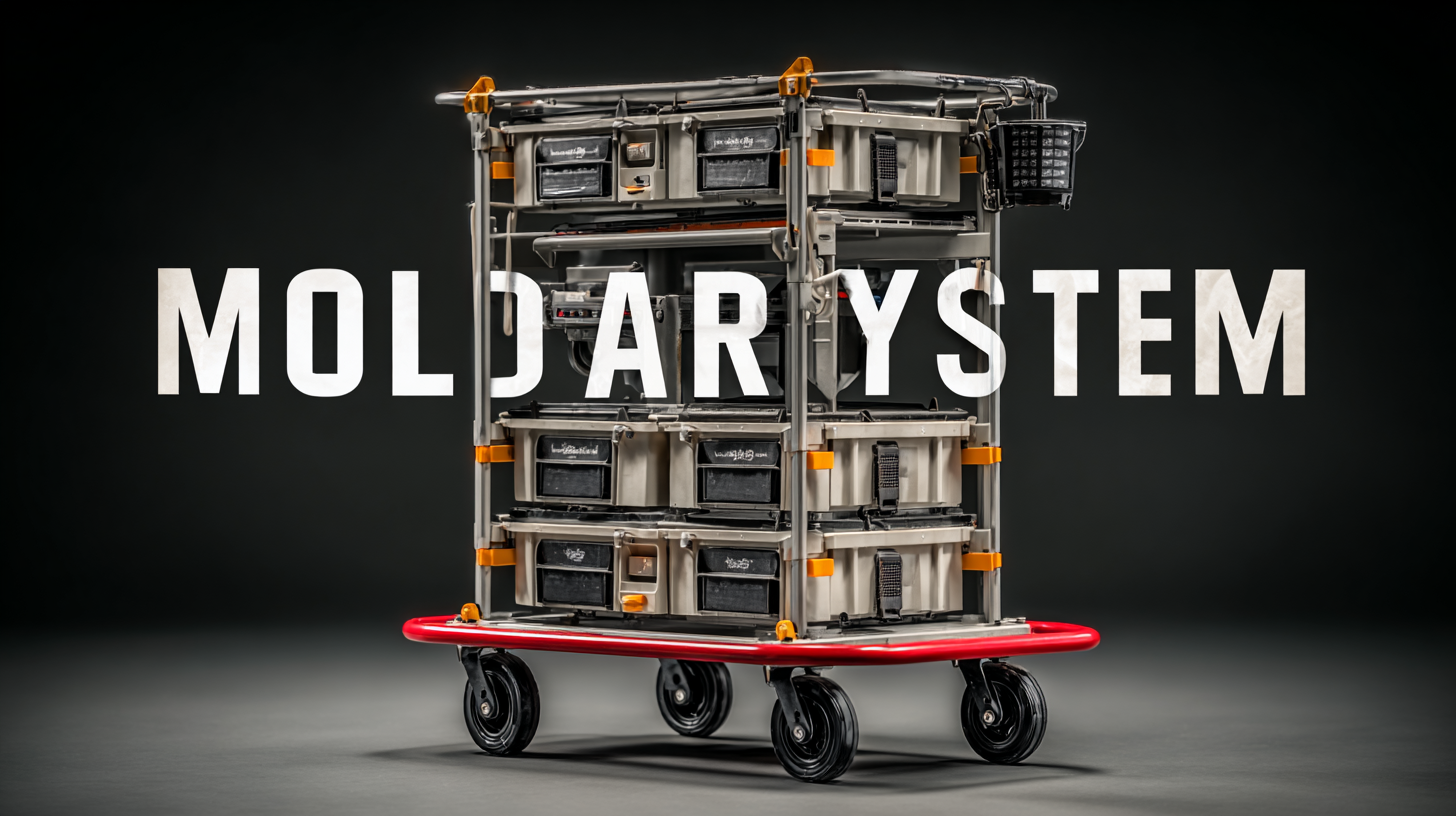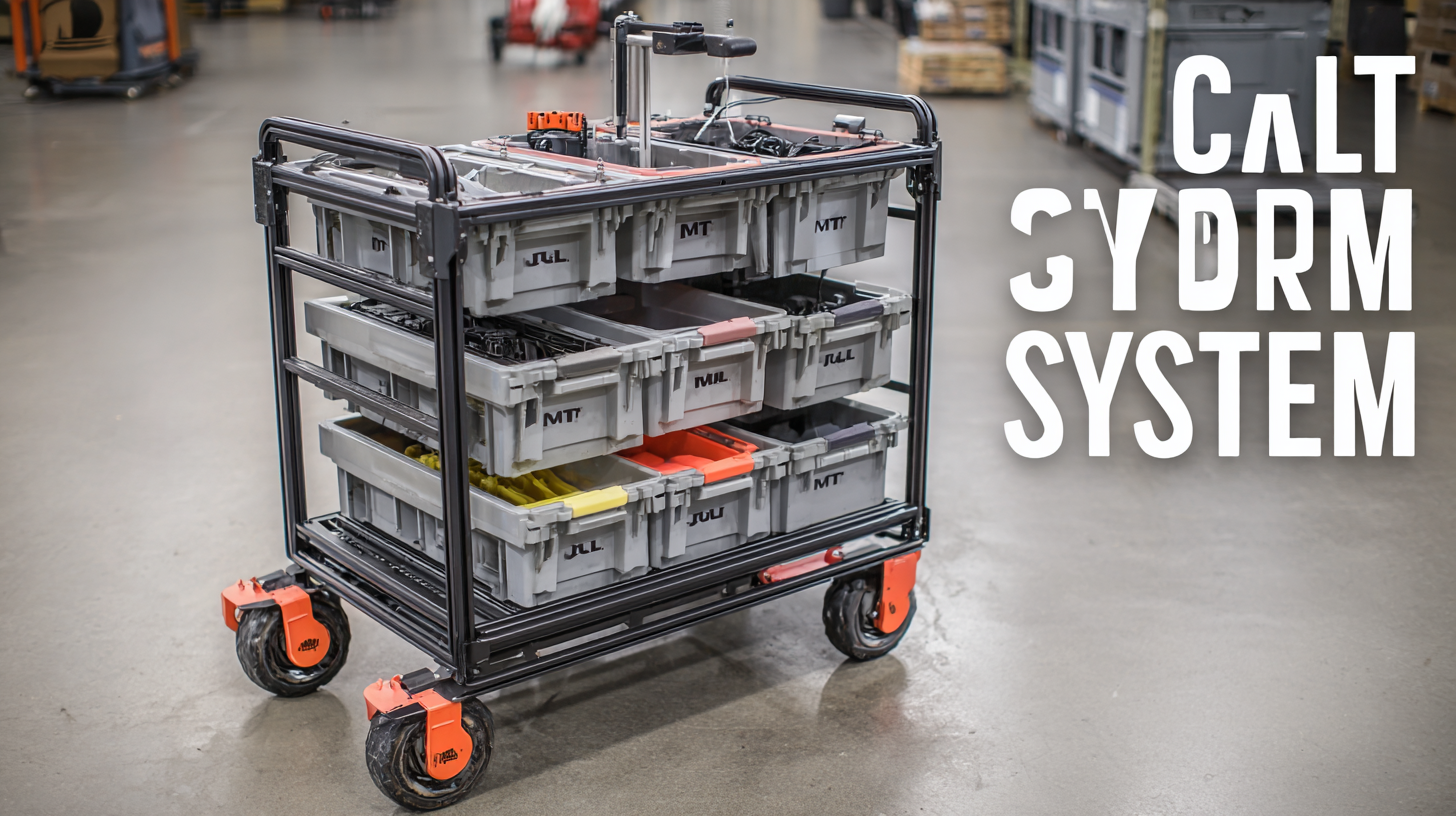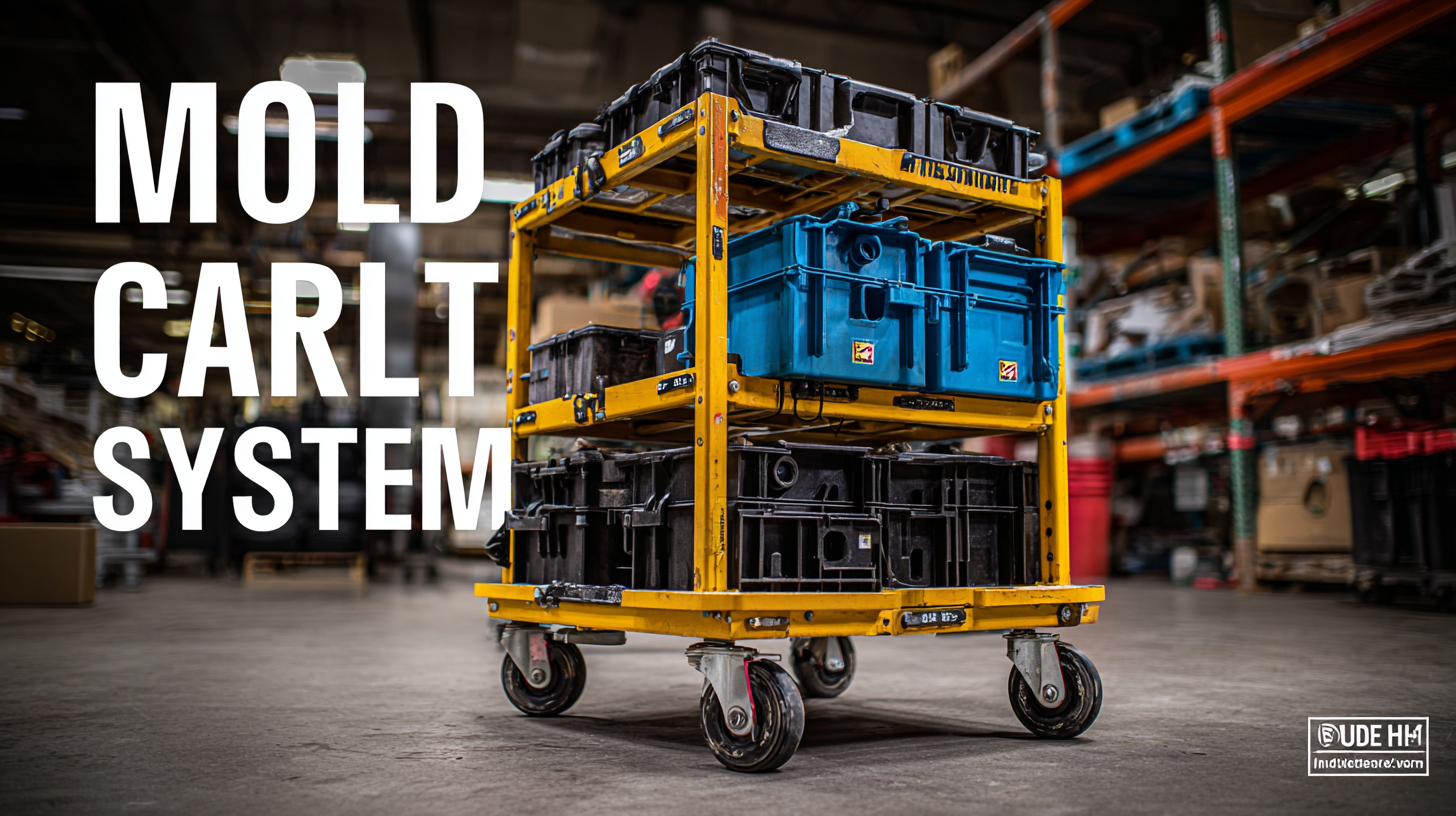Ultimate Guide to Maximizing Efficiency with the Best Mold Cart System
In today's fast-paced manufacturing environment, optimizing operational efficiency is paramount for success. The use of a Mold Cart System has emerged as a vital solution for enhancing workflow and minimizing downtime. According to a report by the Association for Manufacturing Technology, nearly 30% of production workflow losses are attributed to inefficient material handling processes. This underscores the need for innovative systems that streamline the transportation of heavy molds and tools within facilities. A well-designed Mold Cart System not only improves productivity but also enhances safety by reducing the physical strain on workers. Leveraging the best Mold Cart systems can lead to a significant increase in throughput, with studies showing that operational efficiency can be improved by up to 25% when utilizing the right equipment and protocols, making it an essential investment for manufacturers looking to stay competitive in the industry.

Understanding the Importance of Mold Cart Systems in Manufacturing Efficiency
Mold cart systems play a crucial role in enhancing manufacturing efficiency by streamlining the transportation and organization of molds within production facilities. These systems are designed to provide a reliable and efficient means of moving molds, which are often heavy and cumbersome. By employing specialized carts, manufacturers can reduce the physical strain on workers and minimize the time spent in locating and transferring molds. This efficient movement not only boosts productivity but also ensures that molds are handled properly, reducing the risk of damage or defects.
In addition to improving the physical movement of molds, a well-implemented mold cart system can enhance overall workflow. By strategically integrating these carts into the production line, manufacturers can create a more organized workspace that reduces clutter and enhances visibility. This organization leads to quicker access to necessary molds, allowing for faster changeovers between production runs. Overall, understanding and investing in mold cart systems can significantly impact the efficiency of manufacturing processes, leading to higher outputs and better quality control.
Efficiency Boost with Mold Cart Systems
This chart illustrates the impact of mold cart systems on manufacturing efficiency metrics across different key performance indicators (KPIs). The data reflects improvements in production time, cost savings, and workspace organization.
Key Features to Look for in the Best Mold Cart System
When selecting the best mold cart system, it's essential to focus on key features that enhance operational efficiency. A report from the Material Handling Industry (MHI) indicates that incorporating ergonomic designs in carts can reduce workplace injuries by up to 30%. Look for mold carts with adjustable heights and easy maneuverability, ensuring operators can work comfortably while handling heavy molds.
Additionally, consider the weight capacity and structural integrity of the mold cart. Data from the American National Standards Institute (ANSI) suggests that carts designed to safely support over 1,000 pounds significantly decrease the risk of equipment failure and accidental damage to molds. Features like reinforced frames, heavy-duty wheels, and stability locks are crucial for maintaining safety and efficiency in high-demand environments. Focusing on these attributes not only enhances productivity but also fosters a safer workplace for operators.
Impact of Mold Carts on Workflow Optimization and Downtime Reduction
 Mold carts play a crucial role in optimizing workflows and reducing downtime within manufacturing environments. By streamlining the transport and organization of molds, these carts facilitate a more efficient production process. When molds are easily accessible and systematically organized, teams can quickly locate and switch out molds, significantly cutting down on machine idle time and increasing overall productivity.
Mold carts play a crucial role in optimizing workflows and reducing downtime within manufacturing environments. By streamlining the transport and organization of molds, these carts facilitate a more efficient production process. When molds are easily accessible and systematically organized, teams can quickly locate and switch out molds, significantly cutting down on machine idle time and increasing overall productivity.
To maximize the impact of mold carts on your workflow, consider the following tips:
- First, implement a color-coding system for your molds and corresponding carts. This visual method not only simplifies identification but also speeds up the process of retrieval and replacement.
- Second, regularly maintain and inspect mold carts to ensure they are in optimal condition, preventing any delays caused by equipment issues.
- Lastly, train your staff on the best practices for utilizing mold carts, emphasizing how to maintain organization and cleanliness for an effective workflow.
Investing in the right mold cart system can lead to significant improvements in efficiency, directly influencing how quickly and smoothly production occurs. By focusing on these strategies, you can harness the full potential of mold carts, paving the way for increased operational success.
Comparative Analysis: Traditional vs. Modern Mold Cart Systems
When considering the efficiency of mold cart systems in manufacturing, it's essential to compare traditional models with modern alternatives. Traditional mold carts typically feature a simple design with limited features, often relying on manual handling and basic wheels. While they are sturdy and widely used, these carts can lead to inefficiencies, like long setup times and physical strain on workers. Their rigidity might serve well in specific environments, but they often fall short when flexibility and quick turnaround are required.
On the other hand, modern mold cart systems have evolved to meet the dynamic needs of contemporary manufacturing. These systems often incorporate advanced materials and ergonomic designs, allowing for smoother movement and easier transportation of heavy molds. Features such as adjustable heights, automated lifting mechanisms, and mobile capabilities enhance workflow efficiency tremendously. Additionally, modern cart systems can be customized for various industries, meaning that manufacturers can tailor their solutions to specific operational demands, ultimately boosting productivity and safety in the workplace.
Ultimate Guide to Maximizing Efficiency with the Best Mold Cart System - Comparative Analysis: Traditional vs. Modern Mold Cart Systems
| Feature | Traditional Mold Cart Systems | Modern Mold Cart Systems |
|---|---|---|
| Weight Capacity | 500 lbs | 1000 lbs |
| Material | Steel | Aluminum & Composite |
| Mobility | Basic wheels | Swivel casters with lock |
| Ergonomics | Standard height | Adjustable height |
| Storage Options | Limited | Multiple compartments |
| Cost | $300 | $600 |
| Lifespan | 5 years | 10 years |
Real-World Case Studies: Elevating Manufacturing Efficiency with Effective Mold Cart Solutions
In the competitive landscape of manufacturing, efficiency is paramount, especially when it comes to managing mold transportation. Real-world case studies illustrate the substantial impact that effective mold cart solutions have on operational performance. For instance, a recent report by the National Association of Manufacturers found that companies employing specialized mold carts experienced a 30% reduction in changeover time. This reduction not only minimizes downtime but also enhances overall productivity, allowing manufacturers to respond more swiftly to market demands.
Another compelling example can be drawn from a case study featuring a leading automotive parts manufacturer that implemented a custom mold cart system. By utilizing lightweight, ergonomically designed carts, the company improved its workflow efficiency by 25%, as highlighted in a survey conducted by the Society of Manufacturing Engineers. This increase in efficiency resulted from streamlined processes and better organization of mold storage, which ultimately led to a more agile production line. Such data underscores the critical role that optimized mold cart systems play in elevating manufacturing efficiency, driving not just cost savings but also improved output quality.

 English
English Español
Español Português
Português русский
русский Français
Français 日本語
日本語 Deutsch
Deutsch tiếng Việt
tiếng Việt Italiano
Italiano Nederlands
Nederlands ภาษาไทย
ภาษาไทย Polski
Polski 한국어
한국어 Svenska
Svenska magyar
magyar Malay
Malay বাংলা ভাষার
বাংলা ভাষার Dansk
Dansk Suomi
Suomi हिन्दी
हिन्दी
